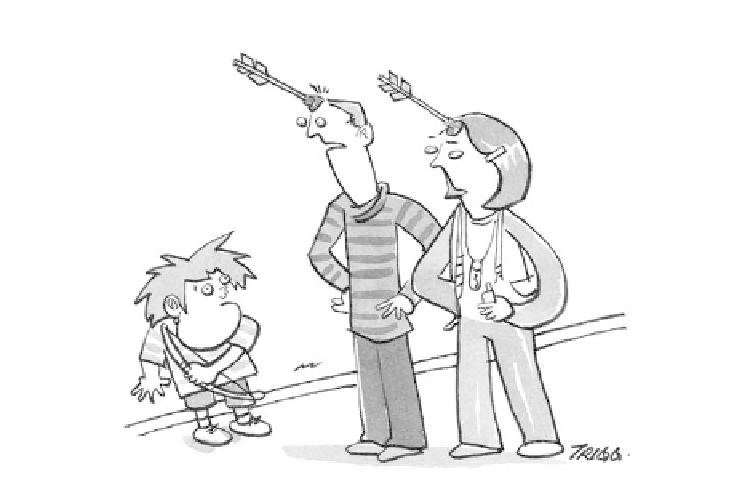Travel Reference
In-Depth Information
Parents will reprimand their children in public, sometimes
to show other adults that they are trying to do the job correctly
and to really instruct the child. In public, in the absence of the
parents, other adults will quickly feel invested with parental
responsibility. The French adore their children, but they show
that affection with a i rm hand and a serious purpose.
They are not playmates to their children, as in some other
cultures. Their job is to civilise. The child seeks companionship
among his siblings and other children. When there is an
adult party at home, the children will usually be sent off
among themselves, and they will be expected to work out
their differences with the older
children taking responsibility for
the younger ones.
At adolescence, the isolation
of childhood is ended, the rules
are relaxed. Teenagers are
rewarded with an apprenticeship
into civilised society, with the
freedom to experiment and
explore. They are supported by
Children's Place
'The French don't regard
childhood as an age of innocence,
but see it as an age of ignorance.
Children must be set straight and
corrected. French parents are,
on the whole, quite authoritarian
about child rearing, and they
teach their children to respect
rules from a young age.'
—from
Sixty Million
Frenchmen Can't be Wrong

































Search WWH ::

Custom Search